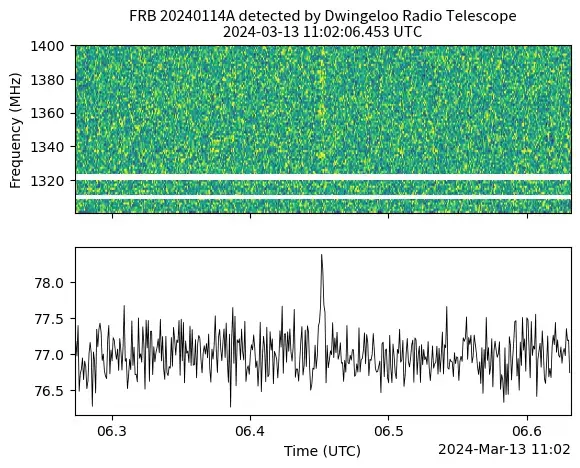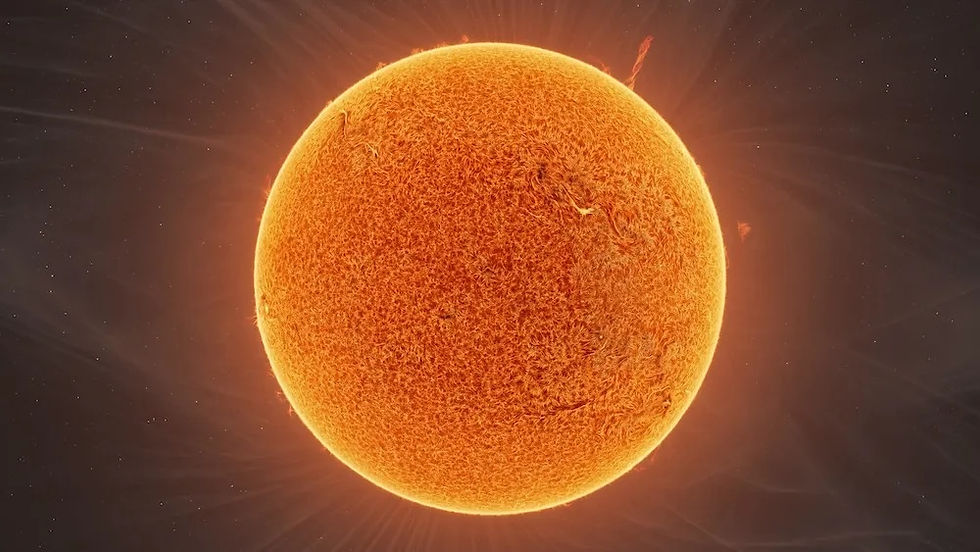A Stormy Sun and Mysterious Radio Signals
- Max Nguyen
- Feb 25, 2024
- 2 min read
This past month brought both dazzling activity from our own Sun and a tantalizing discovery from deep space, showcasing the incredible range of phenomena in our universe. Early in the month, on February 9, the Sun erupted with an X3.4-class solar flare — one of the most powerful flares of this solar cycle. Just a few days later, a massive coronal mass ejection (CME) burst from the far side of the Sun, sending a wave of charged particles hurtling into space. While Earth was spared a direct hit, these events sparked heightened proton activity, reminding us how dynamic and unpredictable our closest star can be. Solar storms like these aren’t just fascinating — they’re a reminder of how closely our planet is connected to the Sun’s immense energy. From auroras lighting up the skies to potential risks for satellites and power grids, the Sun’s outbursts are a force we’re only beginning to fully understand.

Meanwhile, across the universe, astronomers detected a new repeating fast radio burst (FRB) on February 14, designated FRB 20240114A. This mysterious signal, originating from a galaxy cluster nearly 1.4 billion light-years away, has captured the attention of scientists around the world. Repeating FRBs are particularly intriguing because they offer an ongoing opportunity to study these enigmatic flashes of radio waves. What powers them? Could they be tied to magnetars or black holes, or something entirely unknown? The discovery of FRB 20240114A adds to the growing puzzle of these signals and the extreme astrophysical conditions that produce them.
February’s events were a testament to the incredible breadth of space science. From the storms of our Sun to whispers from the distant cosmos, they remind us that the universe operates on scales of energy and distance that continue to stretch our imagination. Whether it’s the thrill of understanding solar weather or unraveling the mystery of FRBs, the cosmos always keeps us looking up — and thinking bigger.



Comments